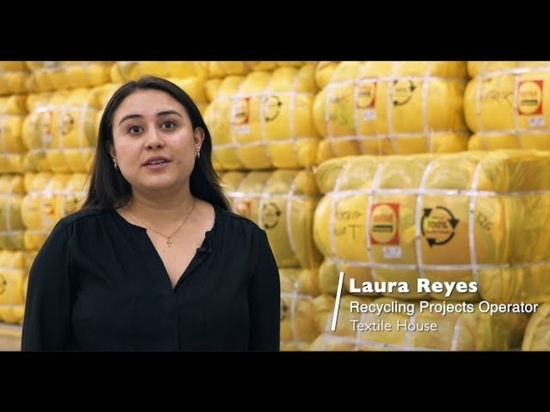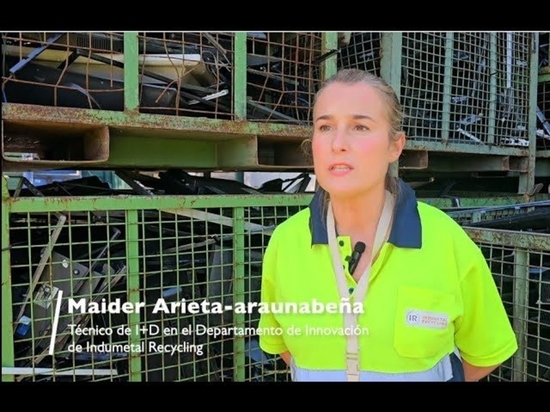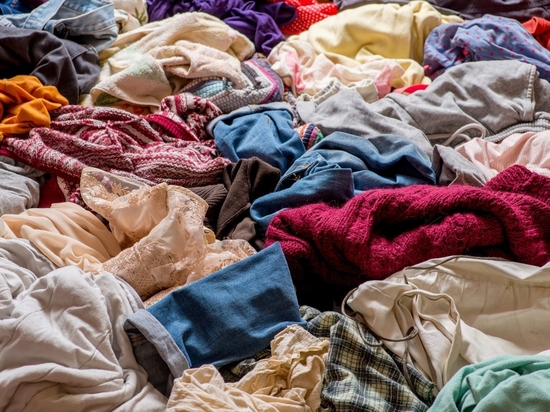
#Industry News
The textile recycling sector receives funding to boost innovation
The textile recycling sector receives funding to boost innovation
Circular economy, Textile recycling
The textile recycling sector receives funding to boost innovation
Reducing the consumption of virgin raw materials, reducing their waste and/or improving their proper management – thereby contributing to the development of the transition towards a circular economy – are major challenges for the textile and fashion recycling sector in Europe. An important step in this direction has been the investment in research and development by manufacturers of effective and sustainable technological solutions, such as those of PICVISA, capable of recycling textile waste as secondary raw materials.
In Italy, a pioneer in textile recycling, the younger generations are more environmentally aware when buying clothes than in other neighbouring countries. As a result, the Italian textile industry has made a drastic change in strategy. So much so that the city of Prato is already the world capital of clothing recycling, with more than 7,000 textile companies processing used clothing from all over the continent.
With great success, the first edition of the Challenge Industriel project, developed by Refashion (the French eco-organization responsible for coordinating and overseeing the recycling and collection of clothing, textiles, and footwear), has been launched in France. Its grants aim to accelerate recycling efforts. This program funds projects specializing in textile and footwear recycling in industries with a certain level of technological maturity. In addition to supporting the implementation of innovative technologies — such as automated sorting systems and those for material and color recognition — it also rewards citizens who choose to repair their clothing and footwear instead of discarding them when they become slightly worn or outdated. Through this initiative, the French government hopes to reduce the 700,000 tons of clothing and footwear that citizens throw away annually, two-thirds of which end up in landfills.
Circular Economy PERTE
There is no doubt that subsidies to promote circularity in the textile, fashion, clothing and footwear sectors are key for these industries. In Spain, as part of the Spanish Circular Economy Strategy for 2030, the Ministry of Ecological Transition and the Demographic Challenge launched the Strategic Project for Economic Recovery and Transformation. Known as the Circular Economy PERTE, this initiative supports investment in technologies and infrastructure that facilitate the reuse and recycling of textile materials. This PERTE is a public-private investment mechanism that will mobilize more than 1.2 billion euros by 2026 and aims to position the Spanish textile sector as an international benchmark in sustainability through the management, recycling and reuse of waste.
Within this PERTE and within the framework of the 2024 Recovery Plan, a call for grants has already been launched for the textile, fashion, clothing and footwear industries to promote their circular economy. It is therefore a textile PERTE that aims to increase the competitiveness of Spanish fashion at international level, as well as the commercialisation of safe, high-quality and affordable textile products for consumers. In this way, it aims to promote the use of raw materials with a low environmental impact, investment in technologies and infrastructures that facilitate reuse and recycling, and improved traceability of products and materials.
The Textile Recycling Sector Receives Funding to Boost Innovation
These grants are available to businesses and social economy organizations, such as duly registered associations and foundations, provided they are not part of the public sector. And in the case of the latter, they can also receive this financial support if they have previously formed groups with the participation of at least one SME, start-up or social economy entity.
Lines of action
It should be noted that this textile PERTE considers different lines of action. These include those aimed at reducing the consumption of virgin raw materials. Also those that can reduce the generation of waste and/or improve waste management, thus contributing to optimizing the transition towards a circular economy in different categories: research and development projects; initiatives to promote digitalisation in order to innovate in terms of processes and organization; projects to increase the level of environmental protection of the beneficiaries, as well as those aimed at improving the management of waste from third parties.
The PERTE envisages that the ultimate aim of these actions should be to launch industrial research projects or experimental development projects, feasibility studies. On the other hand, it makes it easier for the various industries to cover eligible costs such as personnel, instruments and equipment, buildings and land, contract research, knowledge and patents acquired or licensed, as well as general and other ancillary operating costs or those related to feasibility studies.
However, the proper management of no less than 16 million tonnes of textiles per year is no easy task due to the wide variety of fibres involved, their origins – industrial textile waste, post-consumer waste and municipal waste plants – and the lack of standardization in labelling. This makes it necessary to use specific sorting solutions for each of them.
PICVISA wants to accompany the textile sector on this path. It offers automated separation technology based on advanced identification and sorting techniques, such as infrared and colour optical sensors, as well as artificial intelligence systems and robotics. These solutions, capable of separating textile materials according to their composition and colour, make this process an essential step towards the mechanization of textile recycling.
As a method of reusing or reprocessing used clothing, fibrous materials and clothing leftovers from the manufacturing process, textile recycling is in the spotlight of the European Union. And PICVISA wants to be part of the European project by contributing its cutting-edge technology, which has become a driving force for the development of the circular economy in our continent.






